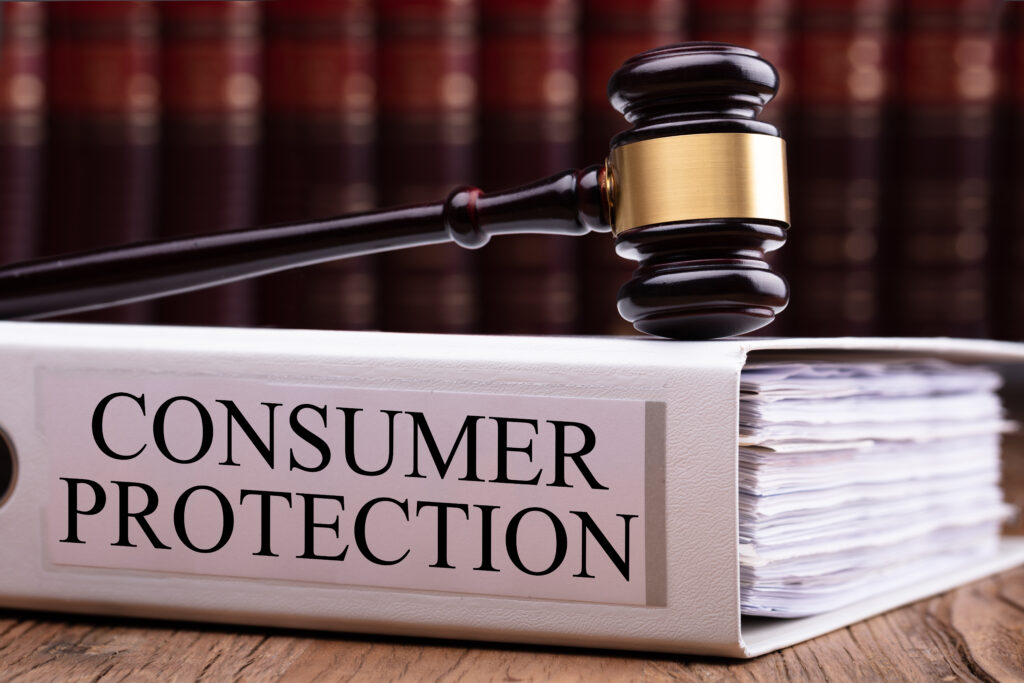It’s an annoyance that has become all too familiar. Your phone rings and the caller ID reads “spam likely.” Or, it looks like a local number so you answer, only to hear a robotic voice trying to sell you something you don’t need or scam you out of your hard-earned money.
If you’re like most Americans, you’re probably fed up with these incessant spam calls that invade your privacy and disrupt your daily life. But can you actually sue for spam calls? The answer is yes.
Under the Telephone Consumer Protection Act (TCPA), you have the right to take legal action against companies that bombard you with unwanted calls or texts. When it comes to TCPA litigation, two of the most common types of cases are those involving pre-recorded calls and Do Not Call (DNC) violations.
If you’ve received robocalls featuring automated voices or have been contacted twice or more within 12 months after registering your number on the national DNC list, you may be entitled to compensation. Our experienced California TCPA lawyers at Kazerouni Law Group, a nationwide consumer protection law firm, are here to help you fight back.
What is the TCPA and How Does it Protect Consumers?
The Telephone Consumer Protection Act (TCPA) is a federal law enacted in 1991 to safeguard consumers from unwanted telemarketing calls, robocalls, and unsolicited text messages.

The TCPA was created in response to the growing number of complaints from consumers who were tired of being harassed by telemarketers and automated calling systems.
The law has since been updated to keep pace with changing technology and to provide even stronger protections for consumers.
Under the TCPA, companies must adhere to strict guidelines when contacting consumers by phone or text.
Some of the key provisions of the law include:
- Prior express written consent: Companies must obtain prior express written consent from consumers before placing telemarketing calls or sending text messages using an autodialer or pre-recorded voice.
- Do Not Call Registry: Consumers can register their phone numbers on the National Do Not Call (DNC) Registry, which prohibits telemarketers from contacting them unless they have an established business relationship or prior express written consent.
- Identification requirements: Telemarketers must provide their name, the name of the business they represent, and a contact number or address during each call.
- Time restrictions: Telemarketing calls can only be made between 8:00 a.m. and 9:00 p.m. in the recipient’s local time zone.
- Opt-out mechanisms: Telemarketers must provide an automated, interactive voice- and/or key press-activated opt-out mechanism during each call, allowing consumers to easily request not to receive future calls.
Some exceptions to this rule are calls related to emergencies, school closures, or other urgent matters. However, in most cases, pre-recorded telemarketing calls are prohibited without prior consent.
By holding companies accountable for their actions, the TCPA empowers consumers to take control of their privacy and protect themselves from unwanted intrusions.
The law curbed abusive telemarketing practices and provided a powerful tool for consumers to fight back against spam callers and texters.
What About Text Messages? Are They Subject to TCPA Rules?
Yes, text messages can count as TCPA violations under certain circumstances. The TCPA applies to both voice calls and text messages sent using an automatic telephone dialing system (ATDS) or an artificial or prerecorded voice.
In the context of text messages, TCPA violations can occur in two main ways:
- Unsolicited text messages: If a company sends you a text message using an ATDS without your prior express written consent, they may be violating the TCPA. This applies to text messages sent for telemarketing purposes or those that include advertisements.
- DNC violations: If you have registered your phone number on the National Do Not Call Registry and a company sends you two or more unsolicited text messages within a 12-month period, it may violate the TCPA’s DNC provisions.
Not all unsolicited text messages are TCPA violations. For example, if you have an established business relationship with a company, they may send you certain types of informational or transactional text messages without your express consent.
However, if you have no prior relationship with a company and they send you unwanted text messages using an ATDS, or if you have explicitly opted out of receiving their messages, you may have grounds for a TCPA lawsuit.
Kazerouni Law Group focuses on text message-based TCPA cases specifically in the context of DNC violations.
How Can a Consumer Protection Lawyer Help Fight Spam Calls?

In today’s digital age, spam calls and texts have become an increasingly pervasive problem, invading our privacy and causing frustration and even financial harm. Taking a stand against spam callers and holding them accountable for their actions can contribute to a safer, more consumer-friendly telecommunications landscape for everyone.
While standing up against spam callers is important, navigating the legal process can be complex and overwhelming. That’s where a skilled TCPA lawyer can help.
A consumer protection lawyer at Kazerouni Law Group can provide invaluable assistance in several ways:
- Assessing your case: A consumer protection lawyer can review the details of your situation and help determine whether you have a valid TCPA case. They can explain your rights and options and help you make informed decisions about how to proceed.
- Gathering evidence: To build a strong case, you need clear documentation of the spam calls or texts you received. Your lawyer can help you gather and organize this evidence, including call logs, screenshots, and other relevant information.
- Navigating the legal process: Filing a TCPA lawsuit involves numerous legal procedures and deadlines. Consumer protection attorneys can handle these complex aspects of your case, ensuring that your claim is filed correctly and on time.
- Negotiating with the offending company: In some cases, it may be possible to reach a settlement with the company that violated the TCPA. Your attorney can negotiate on your behalf to seek a fair resolution and ensure that your rights are protected throughout the process.
- Representing you in court: If your case goes to trial, a consumer protection lawyer can provide skilled legal representation and advocate for your rights in court. They can present evidence, argue your case, and work to secure the best possible outcome for you.
By working with an attorney experienced at handling consumer claims related to TCPA violations, you can take a strong stand against spam callers and hold them accountable for their actions. This not only helps you seek the justice and compensation you deserve but also contributes to a safer, more consumer-friendly telecommunications environment for everyone.
What Types of Damages May Be Available for Spam Calls Violating TCPA?

In cases involving TCPA violations, several types of damages may be available to consumers who successfully pursue legal action. These damages compensate victims for the harm they’ve suffered and punish companies that engage in abusive telemarketing practices.
The two main types of damages available in TCPA cases are:
Statutory Damages
Statutory damages are the most common type of damages awarded in TCPA cases. These damages are set by law and do not require the plaintiff to prove actual harm or financial loss.
Under the TCPA, consumers can recover statutory damages of:
- $500 per violation for each unauthorized call, text, or fax received.
- Up to $1,500 per violation if the court finds that the company’s actions were willful or knowing.
For example, if a company made 10 unauthorized robocalls to your phone, you could potentially recover $5,000 to $15,000 in statutory damages, depending on whether the court finds the violations willful or knowing.
Actual Damages
In some cases, consumers may also be able to recover actual damages in addition to statutory damages. Actual damages are designed to compensate for any real, quantifiable harm or financial loss suffered as a result of the TCPA violation.
Examples of actual damages in a TCPA case could include:
- Lost wages or business opportunities due to the time spent dealing with unwanted calls or texts.
- Costs incurred trying to stop unauthorized communications, such as paying for call-blocking services or changing phone numbers.
- Emotional distress or other non-economic harm caused by the invasive nature of the calls or texts.
To recover actual damages, the plaintiff must provide evidence of the specific harm or loss suffered and demonstrate that it was directly caused by the TCPA violation.
While you might recover these damages in theory, the actual amount awarded in any given case will depend on the specific facts and circumstances involved. Factors such as the number and nature of the violations, the company’s degree of culpability, and the strength of the evidence presented can all affect the ultimate outcome of a TCPA case.
This is where working with an experienced TCPA attorney can be invaluable. A skilled attorney can help you assess the potential value of your case, gather the necessary evidence to support your claim, and advocate for the maximum damages available under the law.
Contact Kazerouni Law Group About a Possible Spam Call Case
If you believe you have a valid pre-recorded call or DNC violation case, gather as much evidence as possible and consult with an experienced TCPA attorney. Kazerouni Law Group can help you assess the strength of your case and guide you through the legal process to seek the compensation you deserve.
By holding companies accountable for their violations of the TCPA, you can protect yourself and others from the frustration and invasion of privacy that come with unwanted robocalls and spam texts. Contact us for your free case evaluation.